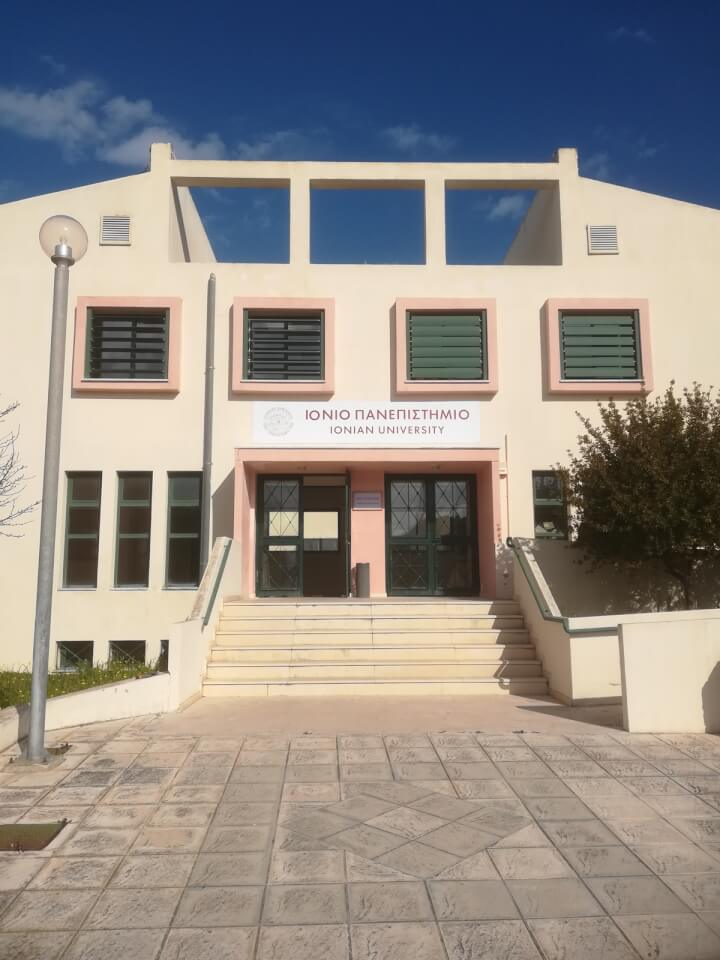The Department of Environment is located on Zakynthos island, an island of the Central Mediterranean and as a result we are fully engaged with the study and research of the natural environment. The Department is housed in a purpose-built building with state-of-the-art scientific equipment and teaching facilities. The wide range of staff’s specialisms and research interests in the Environmental Sciences, offers the opportunity to the students to obtain a high-quality education and to acquire skills to a professional level.
The curriculum of the Department's undergraduate degree programme is based on the Sciences (i.e. STEM subjects) and aims at a deep understanding of the natural, chemical, biological processes and their effects on the environment and on ecosystems, as well as of the environmental technologies used. The programme is regularly updated to include up-to-date international scientific developments, and to meet the requirements of the profession in the country.
The Undergraduate degree programme is developed into two distinct learning parts. The first part, lasting four semesters (i.e. academic years 1+2) uses a series of basic compulsory modules to establish the knowledge background required to understand the main environmental phenomena and processes. The second part, which also lasts four semesters (years 3+4) provides insights into environmental sciences and technologies via many optional modules that are offered. Thus, the student has an opportunity to explore the explore the scientific area of their interest.
Students can complete part of their degree in other European Universities using the Erasmus+ student exchange programme. They can also obtain professional experience via an optional scheme of practical training in the workplace, which is useful when seeking employment in the public and private sectors, at national or international level.
In addition to the undergraduate degree, we offer taught postgraduate programmes (Masters) as well as research postgraduate programmes (PhD). At the level of postgraduate specialization and scientific research, the Department offers targeted interdisciplinary postgraduate studies. Both taught and research programmes aim at exploring modern environmental developments that are related to issues including the management of the natural environment, pollutants, climate change, management and protection of marine and terrestrial ecosystems, energy technologies of minimum carbon footprint, solid and liquid waste management technologies, cultural heritage management and protection, environmental education and sustainable development, and the systematic recording and monitoring of parameters linked to environmental change in the natural and the urban environment.
Our objectives are achieved via teaching and research. We deliver high quality theoretical and laboratory-based teaching. Our research work experience using laboratory and field equipment allows for effective teaching of applied theory and for the development of student skills related to the following:
- Atmospheric, Marine, and Geologic environmental processes and phenomena
- Climatic variability
- Climate variability
- Environmental Technologies
- Production and management of energy from Renewable Sources
- Applied Mathematics in the Environment
- Computational methods and modelling of environmental processes and technological devices
- Information Technology for the management and processing of environmental data
- Recording, analysis and modelling of geospatial data using Geographical Information Systems and remote sensing techniques
- Assessment, monitoring and response to pollution of the natural environment (air - water - soil) as well as water quality
- Treatment and management of liquid and solid waste
- Understanding of physicochemical environmental processes
- Development of analytical methods for the identification and monitoring of pollutants in environmental samples
- Interactions between the natural and the cultural environment
- Applied ecology of plant and animal populations and recognition of ecological processes in ecosystems
- Study and management of biodiversity
- Identification, interpretation, and restoration of Mediterranean Ecosystems
- Systematic monitoring of ecological and anthropogenic activities in terrestrial and aquatic ecosystems
- Design, organisation/management and systematic monitoring of protected species and areas
- Environmental education, communication, and teaching
- Economic assessment of the environment
- Preparation of Environmental Impact Studies
- Design and evaluation of environmental policies



